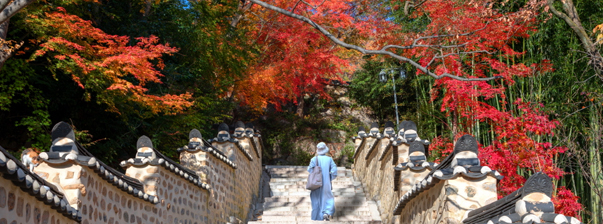Preparing for a Trip
Climate of Busan


Busan has a maritime climate characterized by being cool in the summer and warm in the winter since it is a city bordering the ocean.
From March to May, it is spring time in Busan. It is relatively warm although you may find it chilly when the wind blows.
From June until August, it is summer season where the weather will be humid and hot. During this season, it also a raining season so it rains a lot. From September to November, Busan is often blessed with a clear sky. There is a large difference in temperature between day and night. Typhoons might occur during this period. From December to February during winter, it is windy, cold, and dry. The average temperature ranges from 0°C to 29°C. It can drop to below -5°C or hit above 32°C in rare cases.
Spring (March–May)
The average annual temperature for spring is 13.3℃. It is warm when the wind blows from the southwest. However, when the wind blows from the northeast, you will find it chilly.
Summer (June–August)
The average annual temperature for summer is 23.6℃. Localized torrential downpours frequently occur when the seasonal rain front or low pressure is moving to Busan. When the rainy season is over, the southeast monsoon blows, which makes hot and humid weather last for days. When it is sunny in the afternoon, the city is often affected by the wind from the ocean.
Autumn (September–November)
The average annual temperature for autumn is 17.2℃. Except for the damage caused by typhoons, it tends to be sunny under the influence of the migratory anticyclones in autumn. When autumn comes, there are large differences in temperature between day and night.
Winter (December–February)
The average annual temperature for winter is 4.7℃. Along with the expansion of cold continental highs, the weather becomes cold and dry with strong winds.








